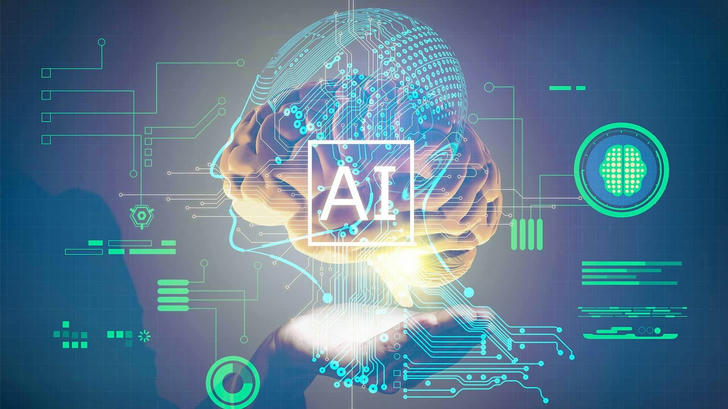Mastering AI skills: How to prepare for a career of the future
In today's rapidly developing technological era, artificial intelligence (AI) is changing the way we work and live at an unprecedented speed. From healthcare to finance, from education to manufacturing, the application of AI is reshaping various industries. In this context, mastering AI skills is not only a career advantage, but also a necessity to prepare for future careers.

Widespread application of AI: a catalyst for changing the world
AI is no longer limited to research projects in laboratories and high-tech companies, it has penetrated into the daily lives of ordinary people. For example:
Medical field: AI assists doctors in diagnosing diseases, such as using image analysis to identify early cancer.
Financial industry: Algorithmic trading, risk prediction and fraud detection have become standard for financial institutions.
Retail industry: Personalized recommendation systems and inventory management are improving shopping experience and corporate efficiency.
Smart transportation: Self-driving cars and optimized traffic flow management are reducing accidents and carbon emissions.
However, these technologies need people who understand AI to promote them. Only those who understand the principles of technology and can apply it innovatively can truly unleash the potential of AI and use it to solve complex problems in the real world.
Why should you master AI skills?
1. Increased demand in the job market
According to the World Economic Forum, by 2025, AI-related jobs will be one of the fastest growing job categories in the world. These jobs cover a variety of roles such as data scientists, machine learning engineers, and AI product managers. The demand for AI expertise in various industries is exploding.
2. Improve professional competitiveness
AI skills have become an important indicator for global employers to find top talents. Talents with AI skills not only have higher salary levels than the industry average, but also can occupy a dominant position in the workplace.
3. Adapt to future changes
With the popularization of automation technology, many traditional jobs may be replaced, and AI skills provide individuals with the ability to adapt to new jobs and reduce the risk of being eliminated.
How to master AI skills?
1. Build a solid foundation
The first step to learning AI skills is to master the basics of mathematics and programming. Mathematics, especially linear algebra, probability theory, and calculus, are the core of understanding machine learning algorithms, and Python, as the most popular programming language in the field of AI, is a must-have skill for every learner.
2. Learn machine learning and deep learning
Machine learning and deep learning are the core areas of AI. By taking relevant courses, such as Stanford University's "Machine Learning" course or the Deep Learning Specialization on Coursera, you can master the basic concepts and techniques.
3. Practice and project experience
Learning AI is not just about mastering theory, practice is the key. Participating in open source projects on platforms such as GitHub, or practicing with data sets on the Kaggle platform can help you apply knowledge to real-world problems.
4. Keep up with industry trends
AI technology is developing rapidly, and it is particularly important to keep learning new tools and methods. Attending industry conferences, subscribing to technical blogs, or joining AI communities can help you keep up with the industry.
Which AI skills are most valuable?
1. Data analysis and cleaning
The core of AI is data. Being able to process, analyze and clean data efficiently is the first step to enter the field of AI.
2. Natural language processing (NLP)
As AI is increasingly used in chatbots, translation tools and voice assistants, NLP skills have become one of the most sought-after skills.
3. Computer vision
The widespread use of AI in image and video analysis has made computer vision another hot area.
4. Cloud computing and big data management
AI projects usually require a lot of data and computing resources, so mastering cloud computing platforms (such as AWS, Google Cloud) and big data processing tools are important skills.
Case Study: From Zero to AI Expert
Emma is an ordinary data analyst. Although she has solid experience in traditional analysis, she realized that AI will change the industry landscape. She began to teach herself Python, then learned the basics of machine learning, and completed several competitions on Kaggle. By accumulating experience through actual projects, she successfully transformed into an AI engineer and now leads a team to develop intelligent recommendation systems. Emma's story proves that no matter what your background is, hard work and practice can help you enter the field of AI.
How will AI skills impact future careers?
Mastering AI skills not only provides more options for personal career development, but also improves job security. Working in the AI industry, you will be at the forefront of innovation, driving the development of new technologies, while receiving an attractive salary package. More importantly, AI skills cultivate logical thinking and problem-solving skills, which are also very valuable in other fields.
in conclusion
The rise of AI brings huge opportunities and challenges. In this transformation, only those who take the initiative to learn and adapt will stand out. By laying a solid foundation, mastering practical skills, and constantly practicing and improving, you can be fully prepared for your future career. Take action now, master AI skills, and start a new chapter in your career development!
